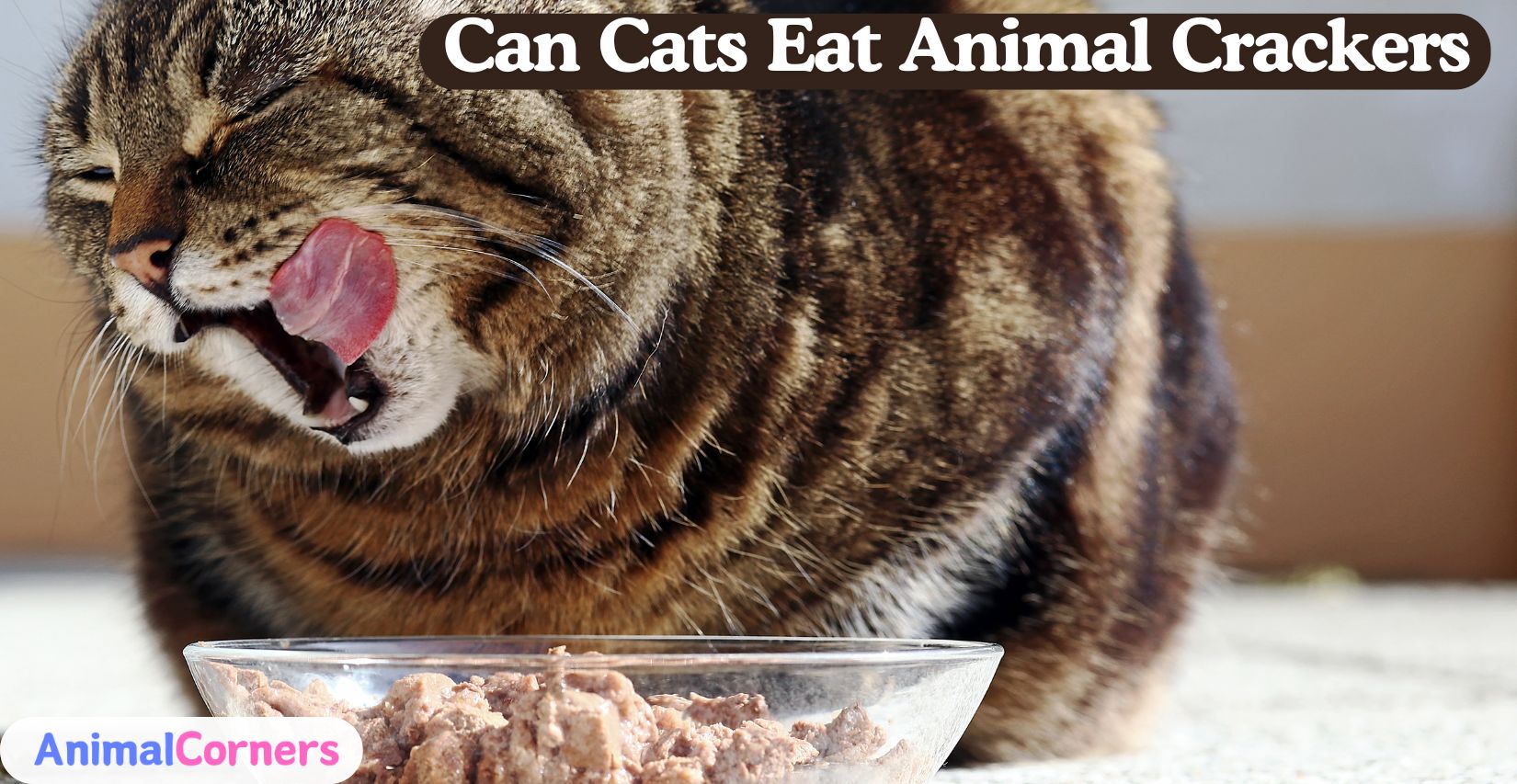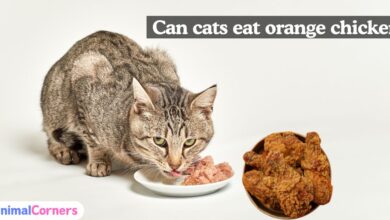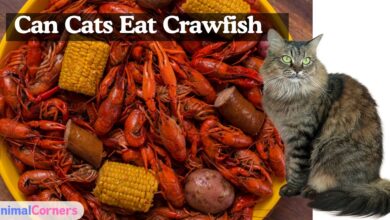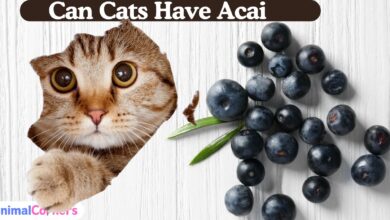Can Cats Eat Animal Crackers? Vet-Approved Insights

Cats are curious creatures, therefore as their owners we always wonder if some human foods are safe for cats or not. These snacks include; biscuits, animal crackers which are sweet snacks. But are animal crackers okay for cats to eat? Therefore, here I am presenting the information at the end of which every cat owner should be, according to the veterinarian’s input and answer to these important questions for this post.
In this post we will learn in detail about “Can Cats Eat Animal Crackers?
What Are Animal Crackers?
Animal crackers are biscuit coins or shapes which have tapes resembling the tastes of lions, elephants, and bears. In most cases it contains flour, sugar, vegetable oil, and leavening agents. These crackers are common snacks with a very sweet taste and the feeling that they are hard, this makes the snack most preferred by most children. There are also basic forms, but the products also come in frosted types or those that have a layer of chocolate. Since the animal crackers do not have strong flavored schemes, they are really fun to munch and they are cheap. However, for a pet such as a cat, they have high sugar and carbohydrates which should not be administered to them.
Can Cats Eat Animal Crackers? The Short Answer
Cats can have a tiny bite of an animal cracker without lethal effects, for the ingredients are not dangerous in moderation. That being said, it is not a good or safe treat for cats. Although animal crackers look like a delightful treat to give your pet, they contain high amounts of sugar and carbohydrates as well as low levels of vital nutrients needed to keep your cat healthy.
Why Are Animal Crackers Not Ideal for Cats?
High Sugar Content
To make animal crackers sweet, manufacturers process them with sugar or sweetener. Cats are obligate carnivores, which implies they should consume protein in large portions, preferably animal protein. Sugar adds no value nutritionally and can cause obesity, diabetes, and problems with teeth in cats.
Carbohydrate-Rich
Cats are not heavy users of carbohydrates, as most cat owners would agree, and more so, domestic cats are not greedy for carbohydrates like some other animals, such as dogs. Flour used as an ingredient in animal crackers, like any starch, may lead to upset stomachs and/or weight gain due to unnecessary calorie consumption.
No Nutritional Value
I found out that animal crackers do not contain vitamins, minerals, or even proteins, which are so vital for a cat. Intake of such snacks frequently leads to unbalanced nutrition since they provide little value to the body.
What Happens If a Cat Eats Animal Crackers?
If your cat eats a small piece of an animal cracker, it’s unlikely to cause harm. However, larger quantities or frequent consumption can lead to:
- Digestive Upset: Cats may experience diarrhea or vomiting due to the high carbohydrate content.
- Weight Gain: Excessive calories from sugary snacks can contribute to obesity.
- Health Risks: Long-term consumption may increase the risk of diabetes and dental problems.
Are There Any Safe Alternatives?
If you want to treat your cat, consider these vet-approved options:
- Cooked Meat: Small pieces of plain, cooked chicken, turkey, or fish are excellent high-protein treats.
- Cat-Specific Treats: Many pet stores sell treats formulated specifically for cats, providing both taste and nutrition.
- Vegetables: Some cats enjoy small pieces of cooked carrots or green beans as an occasional snack.
How to Keep Animal Crackers Away from Cats
Store baby animal crackers in airtight jars on upper shelves or even in closed cabinets to prevent your cat from accessing them. If you provide your cat with sweet snacks like animal crackers, they may become prone to begging when they see you eating. Avoid leaving opened bags on the countertop or any table, as cats are known to seek food.
This is why it is very useful to teach your cat basic words, such as “No” or “Leave it,” for keeping your cat away from snacks. It is also advisable to feed cats with cat-friendly treats, as this can help reduce their curiosity and eliminate their interest in human food. If you follow these steps, your cat will be safe and will not eat any unhealthy snacks that may harm him.
Signs Your Cat Ate Something Unhealthy
If your cat consumes something unhealthy like animal crackers, watch for these symptoms:
- Vomiting
- Diarrhea
- Lethargy
- Increased thirst
- Changes in appetite
If you notice any of these signs, consult your veterinarian.
Conclusion
Cats shouldn’t receive animal crackers, even if they don’t seem to contain any harmful ingredients. Observe that cats are obligate carnivores; their diet consists of dietary protein and a number of nutrients. Animal crackers do not havAnimal crackers lack any nutritional value and may contain sugars, carbohydrates, and even worse, potential additives that could lead to habitual issues such as obesity, diabetes, and digestive issues. an snack is unlikely to cause any sudden ill effects in your cat, it’s still not healthy to include such snacks frequently.
However, you should only feed your cat treats such as boiled chicken, fish, or any other commercial cat treat. The options mentioned below cater to your cat’s specific needs and ensure that they maintain a healthy diet. In this article, we will look at some of the identifying factors of safe and unsafe cats and, therefore, make some generalizations that will enable you to keep your cat sheltered in every possible way and thus encourage her or him to remain active, healthy, and happy throughout our furry friend’s life.
FAQs
Can Cats Eat a Small Amount of Animal Crackers?
Sure, a single grain won’t harm your cat, but it’s not a source of nutrients either. It may cause a child to gain weight, or too often it can upset the child’s tummy. It is not advisable to prepare your cat’s own meals because they only require protein, not carbohydrates, baked goods, or any other food.
Are There Any Toxic Ingredients in Animal Crackers for Cats?
One or several animal crackers may contain chocolate or artificial sweetening substances such as xylitol, which is poisonous to cats. It is important that you always read the ingredients list before allowing your cat to bite into any human snack.
Why Do Cats Get Sick After Eating Animal Crackers?
Animal crackers are high in sugar and carbohydrates and may cause diarrhea or upset the stomach in cats. Their unique body naturally digests protein when they eat flour-based or sugary foods, which can lead to vomiting or diarrhea.
Can Kittens Eat Animal Crackers?
No, kittens need a balanced diet to foster their growth and development. Animal crackers are inedible, contain no or little nutritional value, and can lead to digestive disorders. Choose kitten food and kitten treats so the kitten gets a diet that is right for their needs.
How Often Can I Give My Cat Human Snacks?
It is better not to have human snacks in any way possible. Therefore, if you wish to feed the spider, feed it plain cooked meat that has been cut into tiny pieces. People who frequently consume human snacks may gain excessive weight and develop other chronic diseases.




